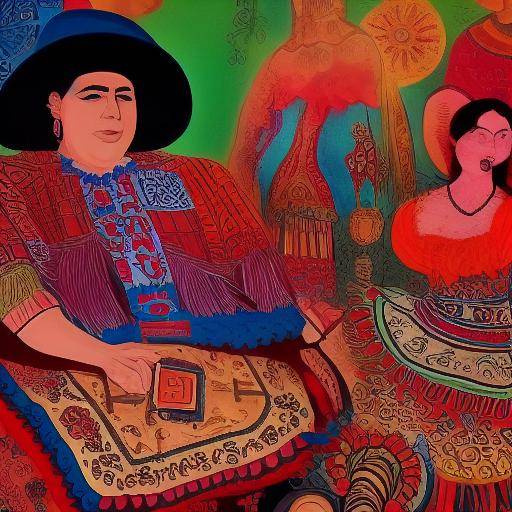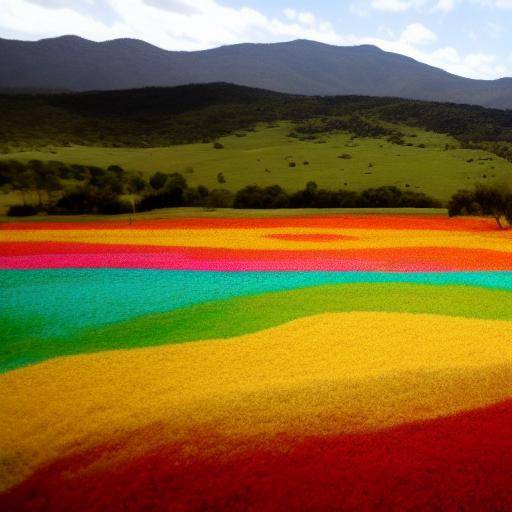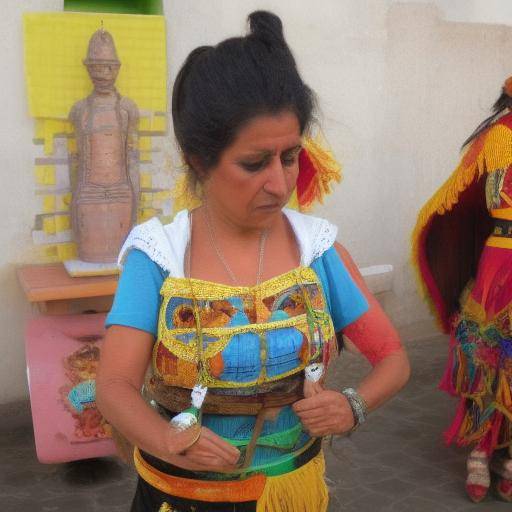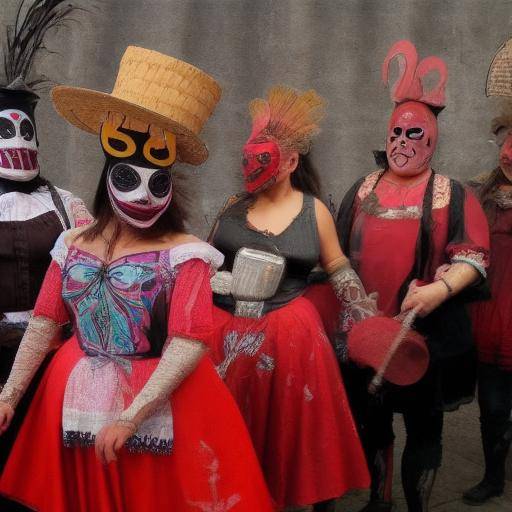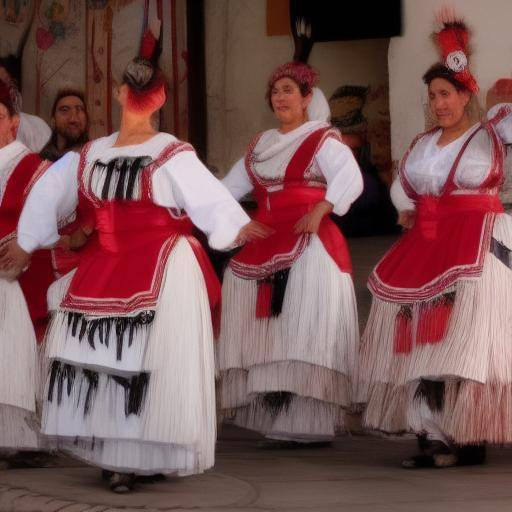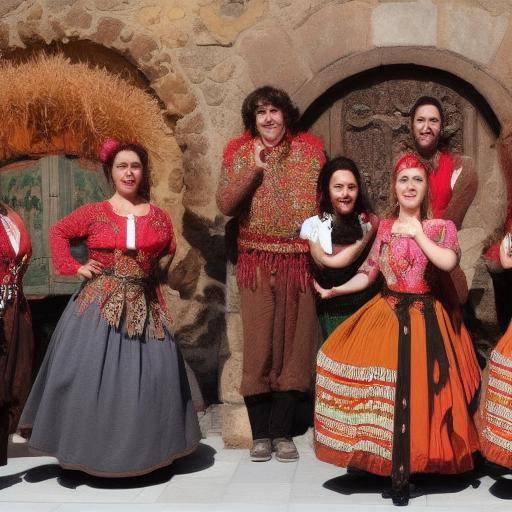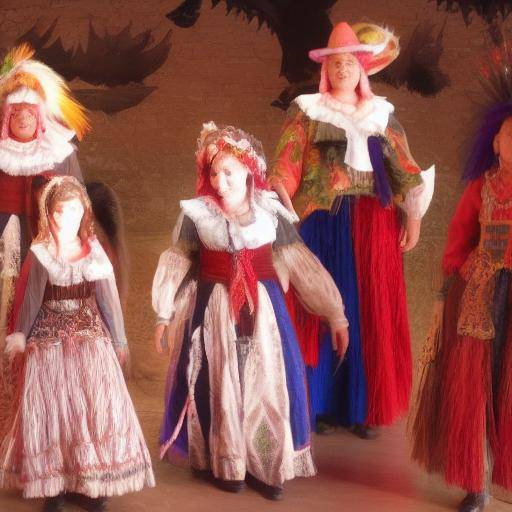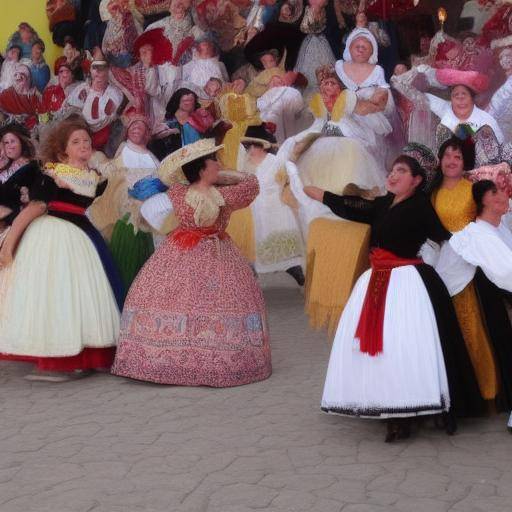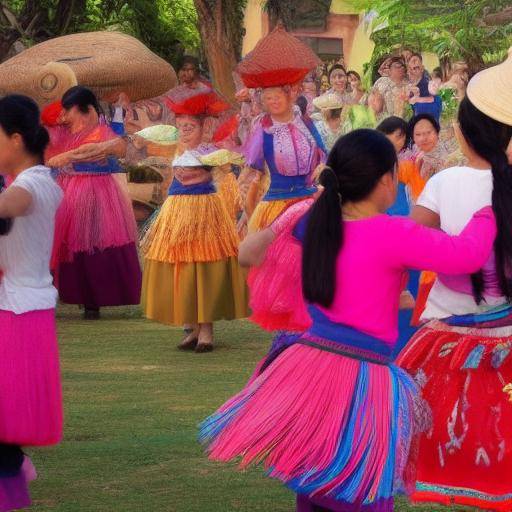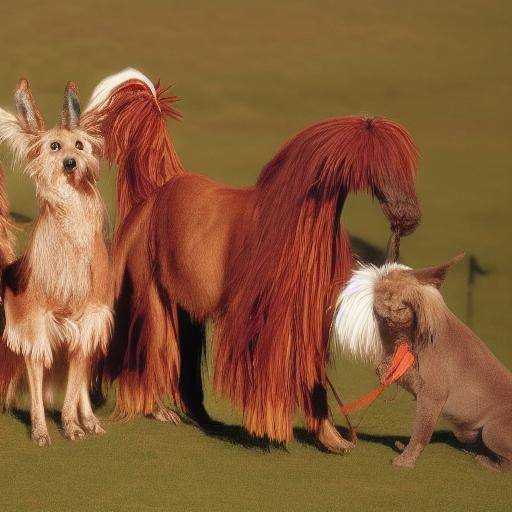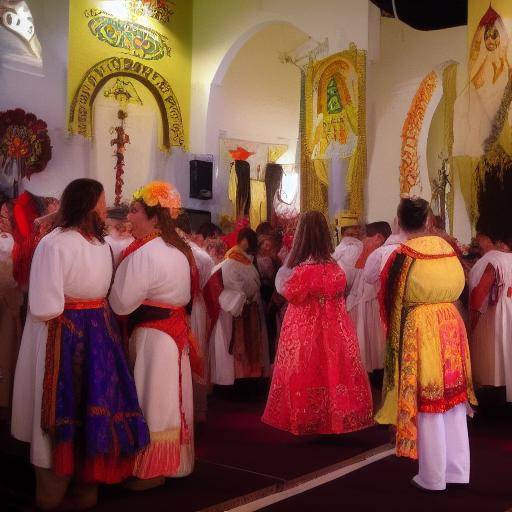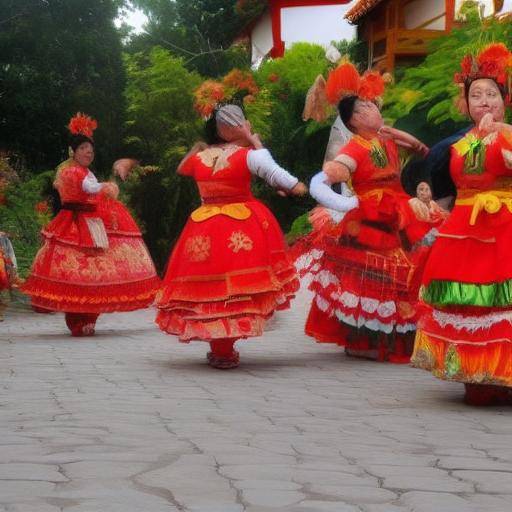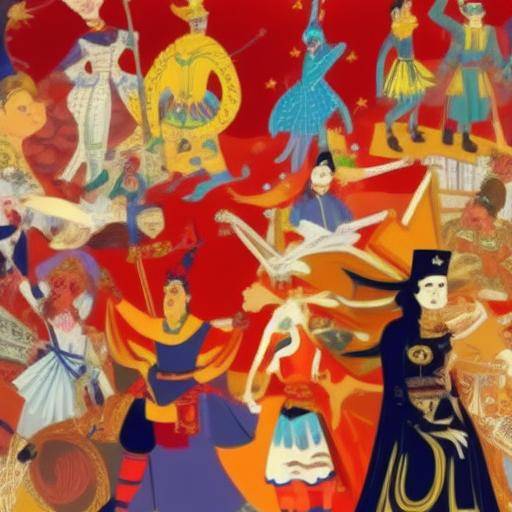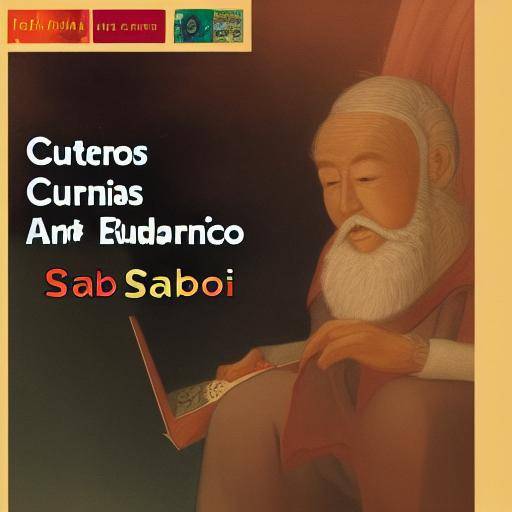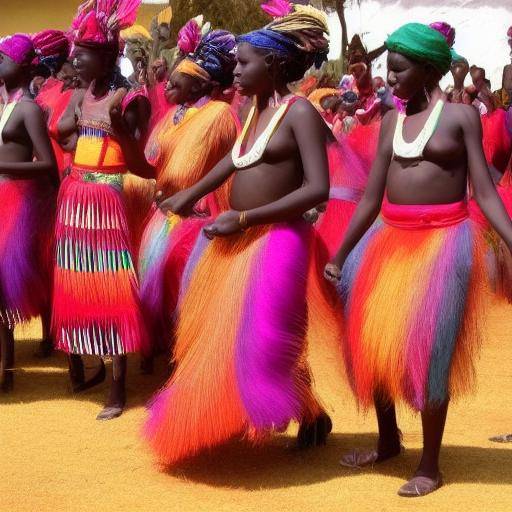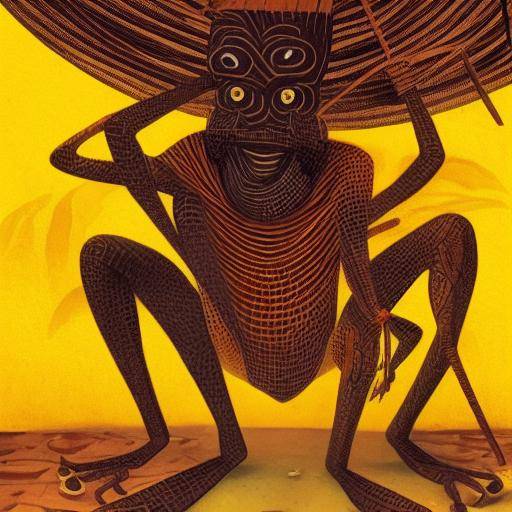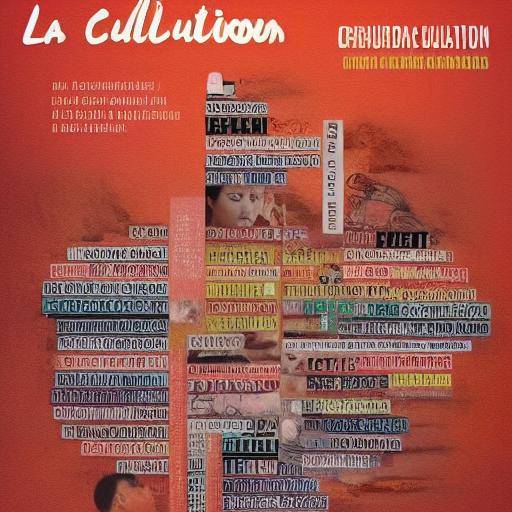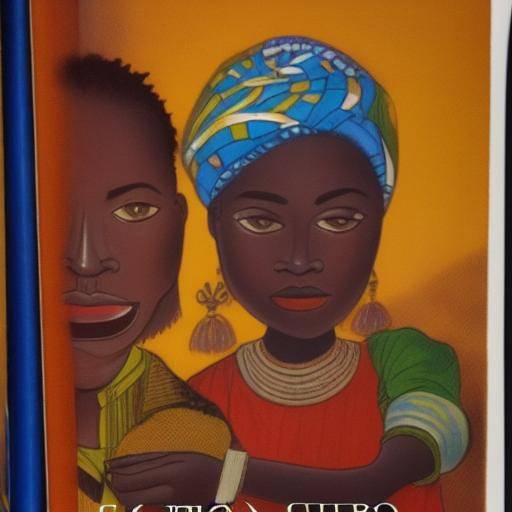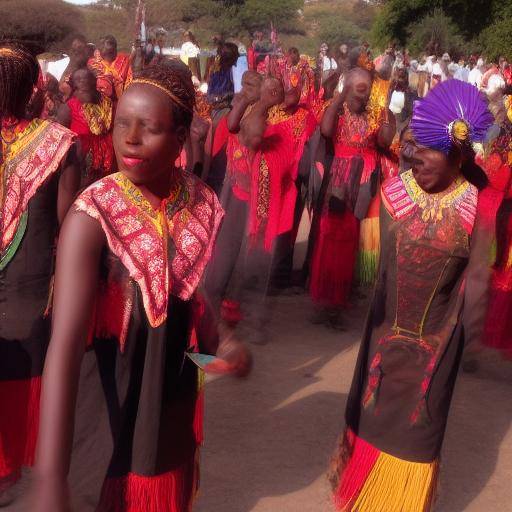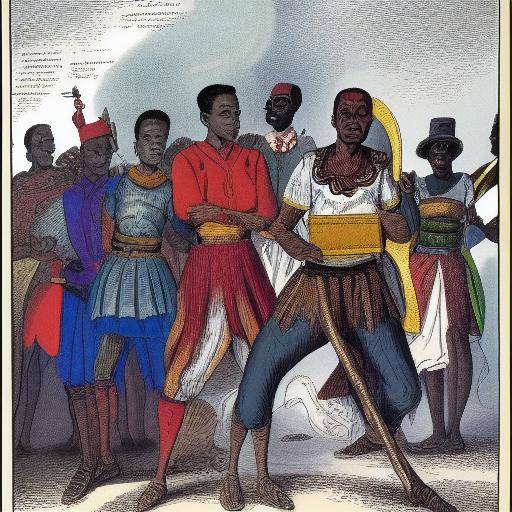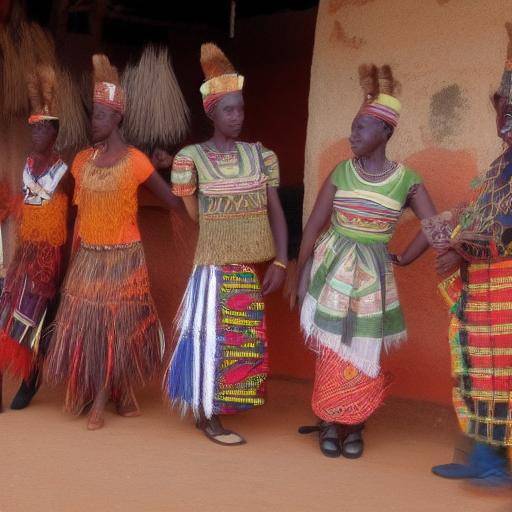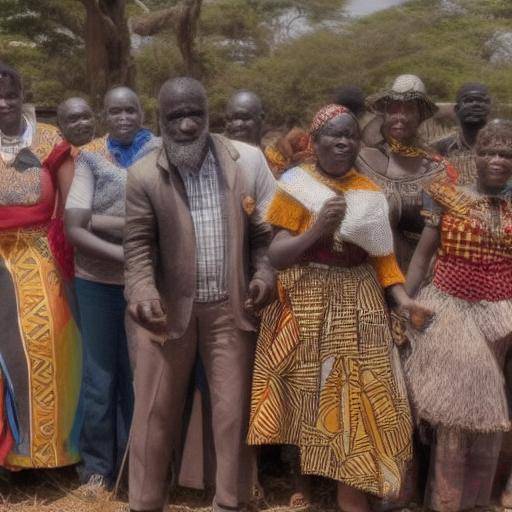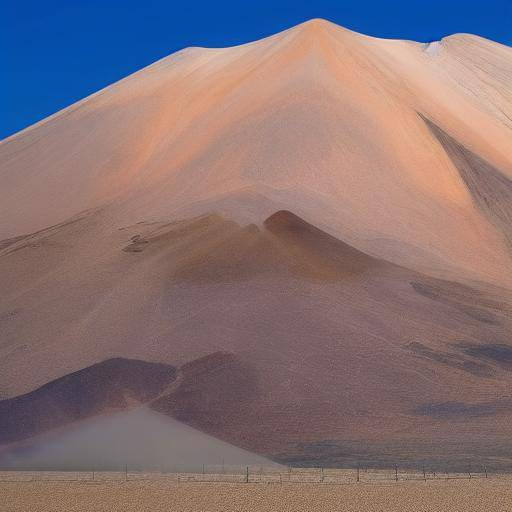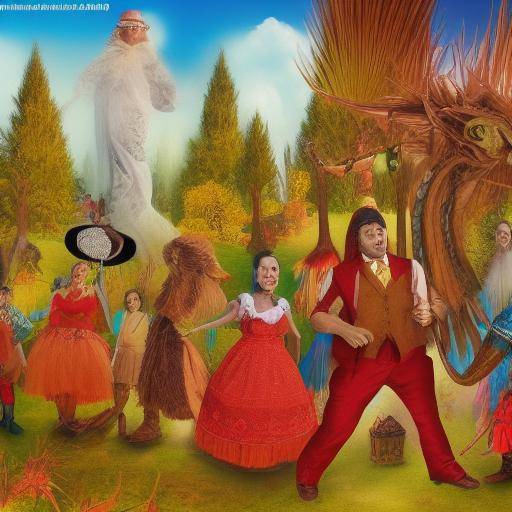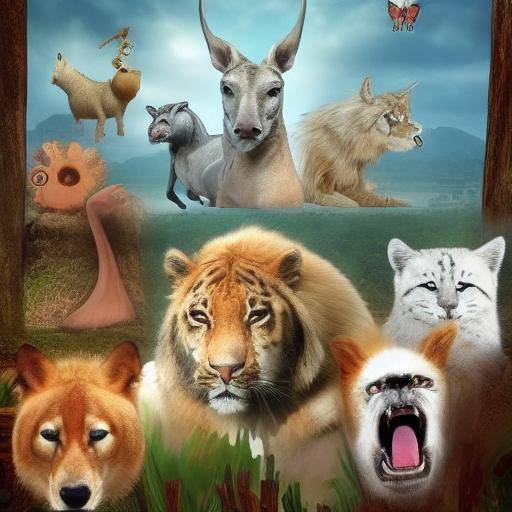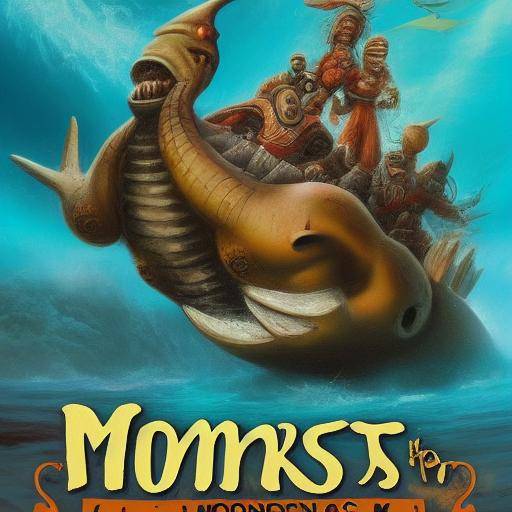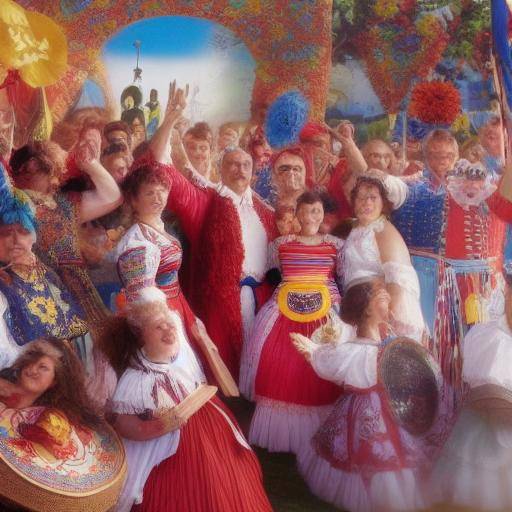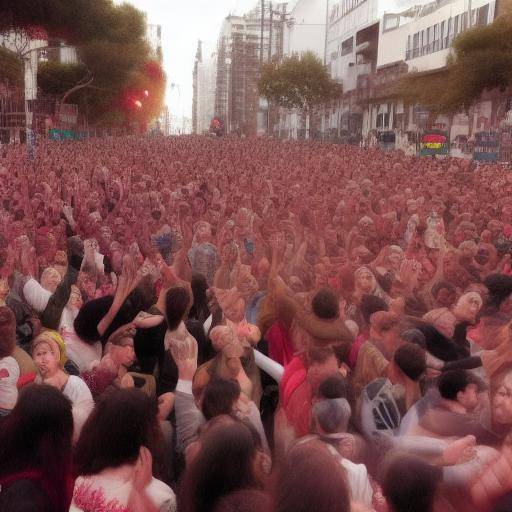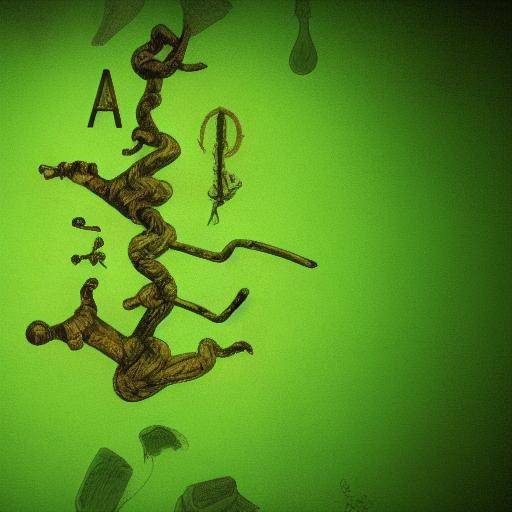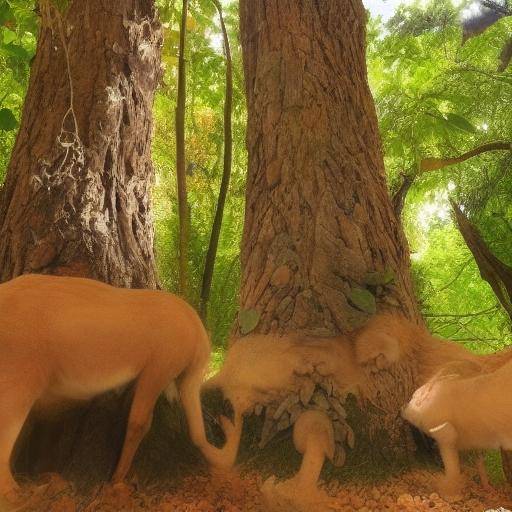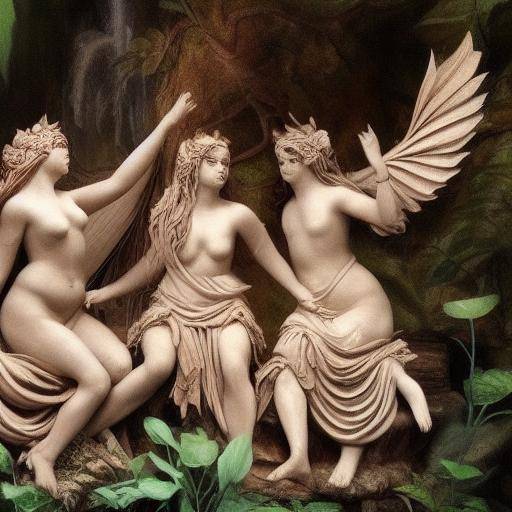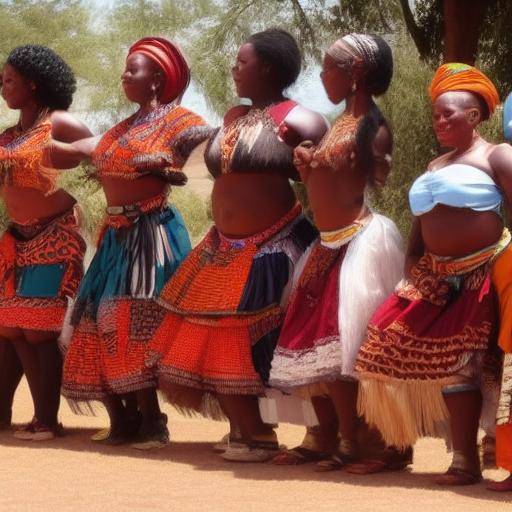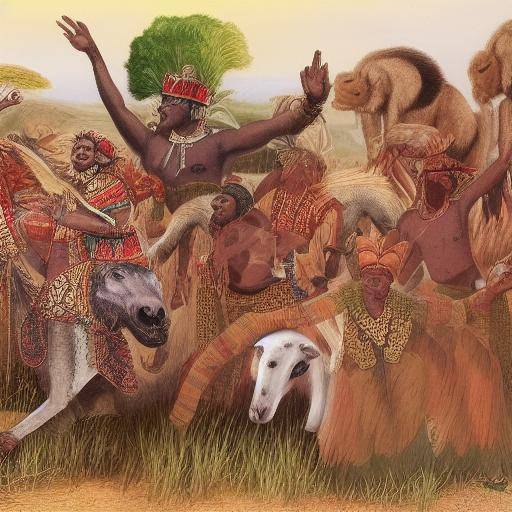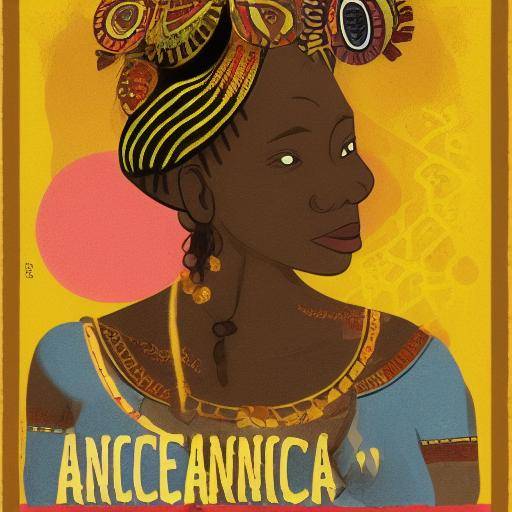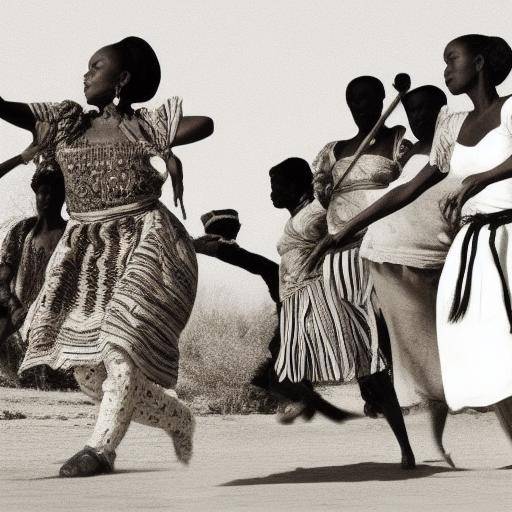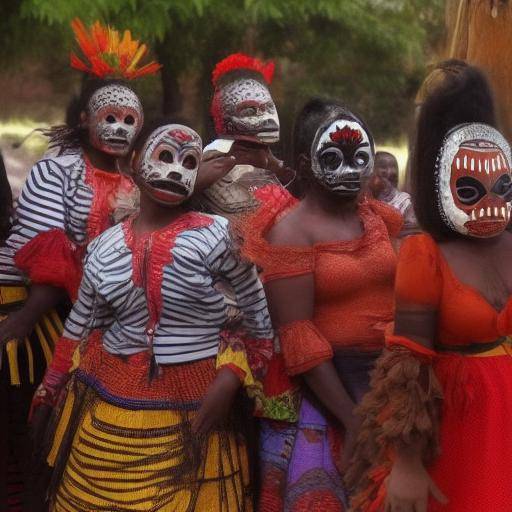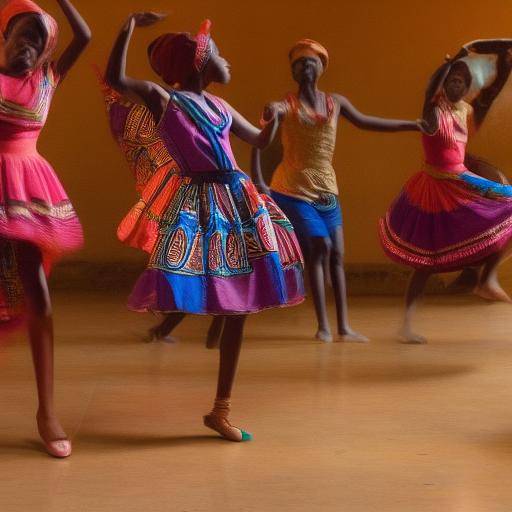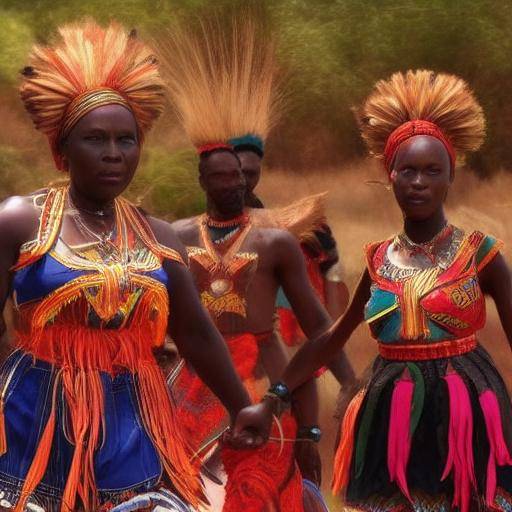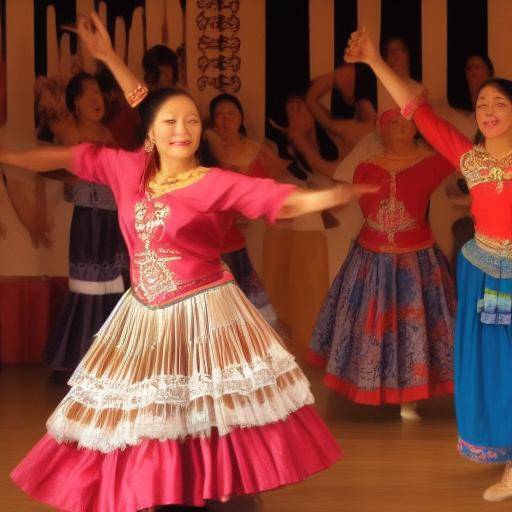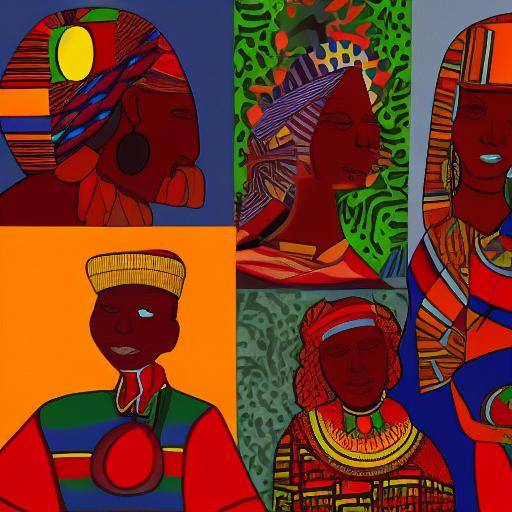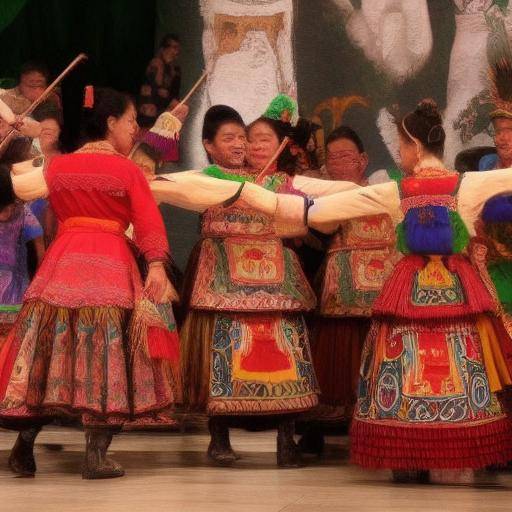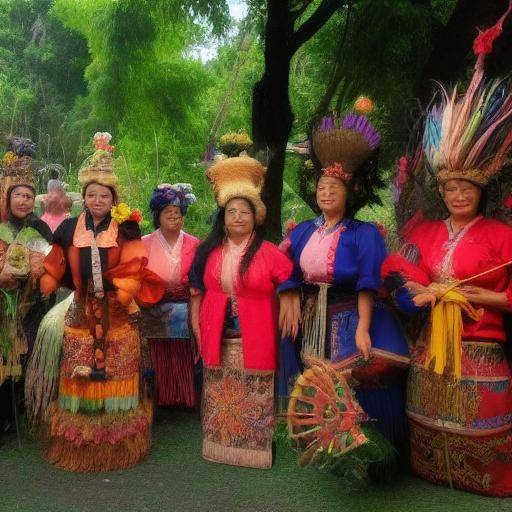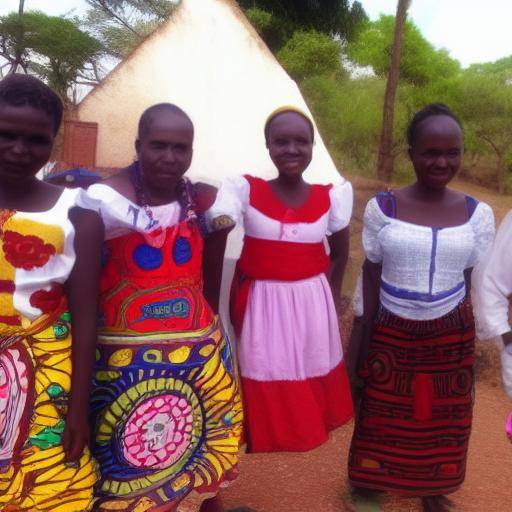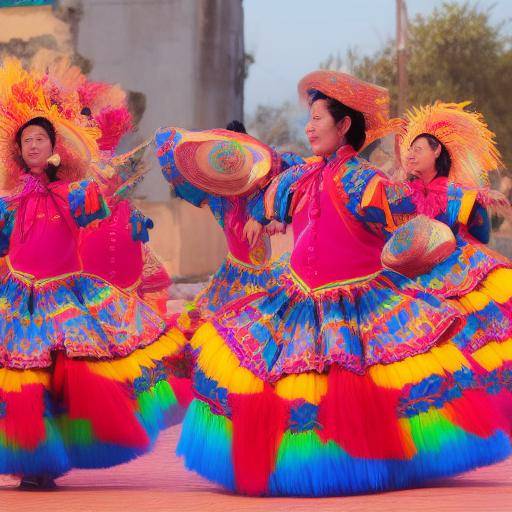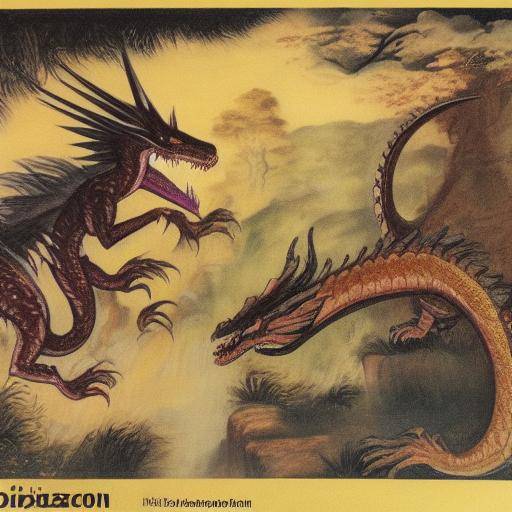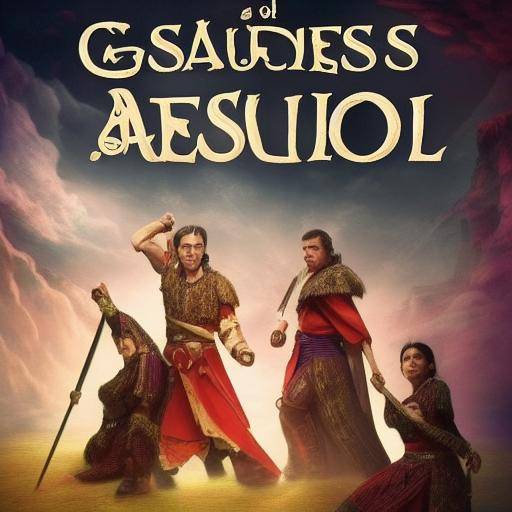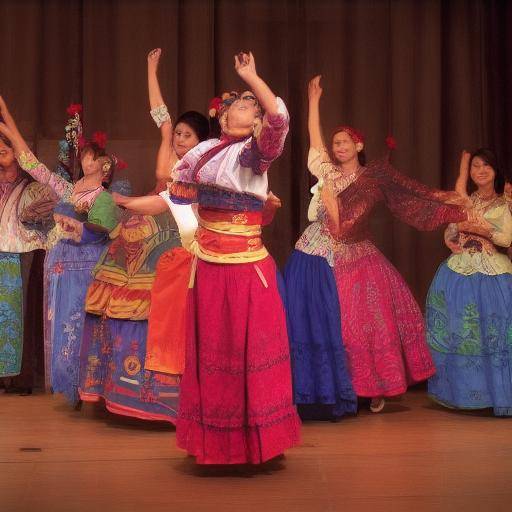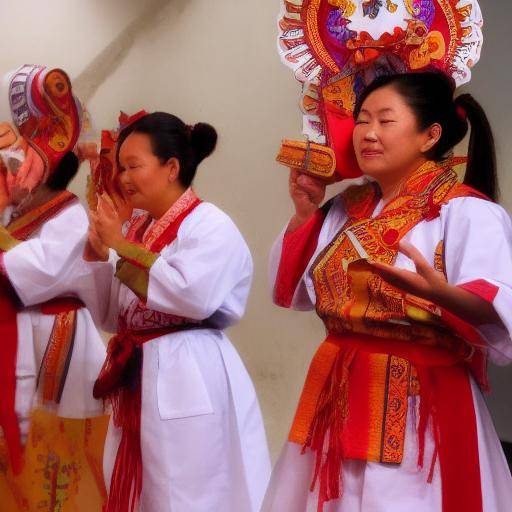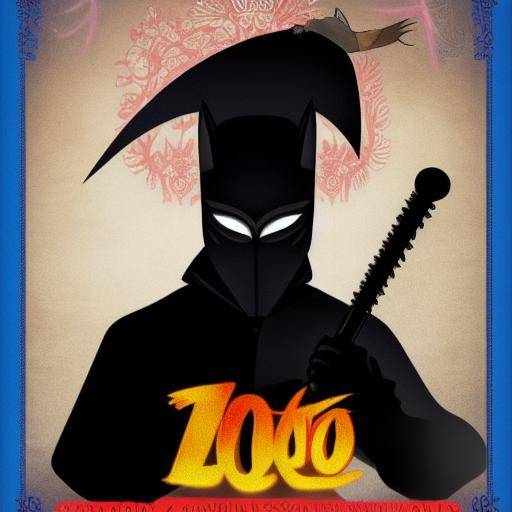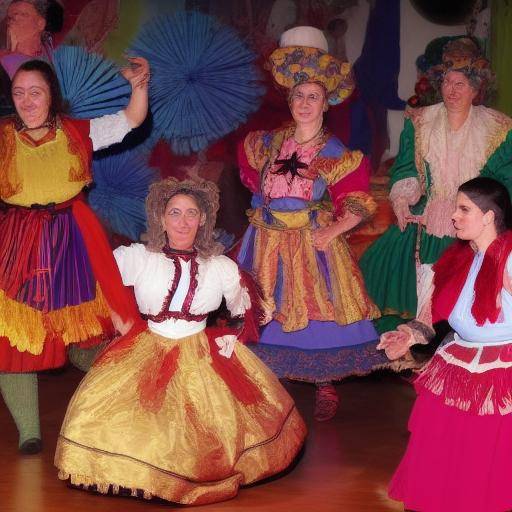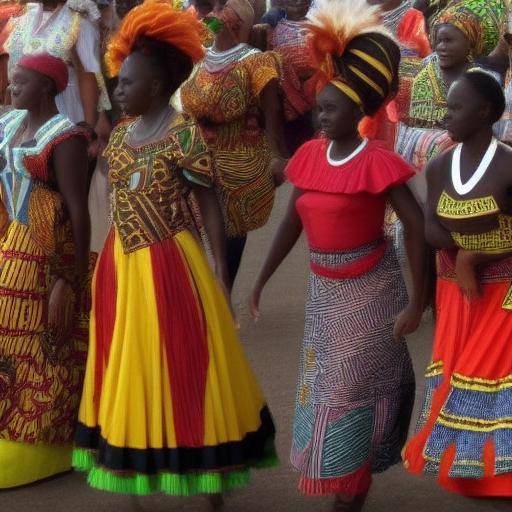
African folklore is a rich amalgam of traditions, folklore and beliefs that have remained alive for centuries. This rich cultural upholstery is full of deities, spirits and myths, which form the very basis of African cultures. In this article, we will explore in depth the fascinating deities and spirits of African folklore, its historical relevance, influence in today's society, and the enormous diversity that characterizes these ancestral beliefs.
Introduction
African folklore is a treasure of myths, legends, and ancestral deities that have endured throughout generations, weaving the beliefs and traditions of a myriad of cultures in a tapestry of unparalleled diversity. From the majestic gods and deities of ancient civilizations to the spirits of nature and local legends, African folklore is a cosmos of beliefs that reflects the spiritual and cultural richness of the continent.
In this article, we will enter the infinitely vast and enriching world of the deities and spirits of African folklore. We will explore its history, meaning, contemporary manifestations, and its impact on today's society. Join us in this exciting journey through the depths of African folklore, where we will unravel the mystical influence of deities and spirits in the life and worldview of African communities.
History and Background
African folklore dates back to millennia of history, rooted in oral traditions and the wisdom transmitted from generation to generation. The deities and spirits of African folklore have their roots in ancient African civilizations, such as Egypt, Kush, Axum, Zimbabwe, and many more. These civilizations worshiped a multitude of gods and deities that personified fundamental aspects of life and nature.
African deities, known for their diversity and symbolic wealth, have evolved over time, influencing everyday life, festivities and rituals of different communities. These deities not only represent divine entities, but also encapsulate moral and ethical teachings that have shaped the social fabric of African societies over the centuries.
In the context of African folklore, spirits also play a fundamental role. These spirits are metaphysical entities that are believed to reside in nature, in animals, natural phenomena, elements and objects. Often, spirits are seen as messengers between the physical world and the spiritual world, and their influence extends to aspects as diverse as healing, fertility, protection, and justice.
Analysis in Deep
The influence of the deities and spirits of African folklore persists to this day, playing an integral role in the spiritual and religious practices of millions of Africans. Despite the arrival of different religious currents, these ancestral beliefs have persisted, adapting to contemporary contexts and maintaining their relevance in the daily lives of many communities.
The growth of the African diaspora has led to the global diffusion of the influence of African deities and the spirits of folklore, finding echo in various cultural manifestations around the world. The presence and impact of these beliefs on music, art, literature and contemporary spirituality are witnesses to their permanent validity and influence.
Comprehensive review
African deities, the spirits of folklore and the legends transmitted from generation to generation continue to play an essential role in the lives of millions in Africa and the diaspora. Its influence transcends the spiritual, extending to the way in which African communities face modern challenges, adapt to social changes and preserve their cultural identity in a constantly evolving world.
Comparative analysis
African deities and the spirits of African folklore share similarities and differences that reflect the diversity and complexity of the spiritual and cultural landscape of the continent. While deities often represent divine entities with specific attributes and powers, spirits often incarnate natural forces and particular aspects of existence.
The connection between deities and spirits, in many cases, is intertwined through mythological narratives that reveal a network of complex relationships between the material world and the spiritual world. These relationships and narratives are fundamental to understanding the religious and spiritual practices of African communities, as well as the worldview that underlies in their art, music, dance and rituals.
Tips and Recommended Actions
For those who seek to understand and appreciate the deities and spirits of African folklore, it is important to approach with respect, sensitivity and mental openness. Listening to the stories, beliefs and practices of African communities in a reflective and unprejudiced manner is essential for an authentic and meaningful understanding of African folklore.
Responsible cultural exchange and intercultural collaboration can enrich mutual understanding and encourage appreciation of cultural diversity. In exploring the deities and spirits of African folklore, it is crucial to recognize the depth of their meaning in the context of the communities that worship and celebrate them, and to avoid undue appropriations or superficial simplifications.
Industry Reflections and Expert Reviews
The study of African folklore, including its deities and spirits, opens the door to a deeper understanding of the rich and serene spirituality of the continent. Academics, ethnologists, anthropologists and religious leaders have devoted years of study to unravel these traditions, and their contributions allow us to understand the depth and complexity of these ancestral beliefs.
The implications of African folklore, the deities and spirits that make up it, expand our understanding of the spiritual and cultural diversity of the continent. Its influence extends to fields as diverse as literature, music, art, anthropology, sociology and theology, enriching human knowledge and promoting respect and mutual understanding among cultures.
Case Studies and Practical Applications
The influence of the deities and spirits of African folklore is manifested in a tangible way through various cases of study that illustrate their impact on the daily life and spiritual practices of African and diaspora communities. These cases highlight the adaptability and continued validity of these beliefs in modern contexts.
Future Trends and Predictions
The future of African folklore, including its deities and spirits, is intrinsically linked to the preservation of cultural and spiritual traditions, as well as its ability to adapt to constantly changing environments. Current trends suggest a renewed global interest in these cultural manifestations, as well as a greater appreciation of traditional knowledge and African cosmovision.
Conclusions and FAQs (FAQs)
In conclusion, the deities and spirits of African folklore are fundamental to understanding the rich spiritual and cultural diversity of the continent. Its influence endures through the centuries, enriching the lives of African communities and projecting their resonance globally.
Frequently asked questions (FAQs)
1. What is the difference between African deities and folklore spirits?
African deities are usually entities with divine attributes and specific powers, while the spirits of folklore represent forces of nature or particular aspects of existence, often associated with places, elements or natural phenomena.
2. How have beliefs evolved in African deities and spirits over time?
Beliefs in African deities and spirits have evolved in response to historical changes, cultural interactions and migratory movements. These beliefs have shown remarkable flexibility to adapt to new contexts and preserve their relevance in everyday life.
3. How does the influence of African deities and spirits manifest in contemporary culture?
The influence of African deities and spirits is reflected in various cultural expressions, including spiritual practices, festivities, music, art, fashion, literature and films. These manifestations attest to the permanent validity and relevance of these beliefs in modern life.
4. How can you study and appreciate African folklore in a respectful and authentic way?
The study and appreciation of African folklore require an attitude of respect, openness and sensitivity towards the traditions and beliefs of African communities. It is essential to address these issues with an intercultural approach that recognizes and values cultural and spiritual diversity.
5. What is the importance of preserving and promoting African folklore in current society?
The preservation and promotion of African folklore are fundamental to safeguarding the cultural and spiritual diversity of the continent. These traditions enclose a vast ancestral knowledge that enriches human understanding and promotes the appreciation of the spiritual wealth of Africa.
6. What role do African deities and spirits play in cultural identity?
African deities and spirits are fundamental pillars of the cultural identity of African communities, enriching their cosmovision, their art, their music, their literature and their way of relating to nature and the spiritual world.
In short, African folklore, enriched by the deities and spirits that make up it, is an inexhaustible source of wisdom, inspiration and tradition. Its influence transcends time and space, providing a deeper understanding and a spiritual link with the rich cultural diversity of the African continent.

